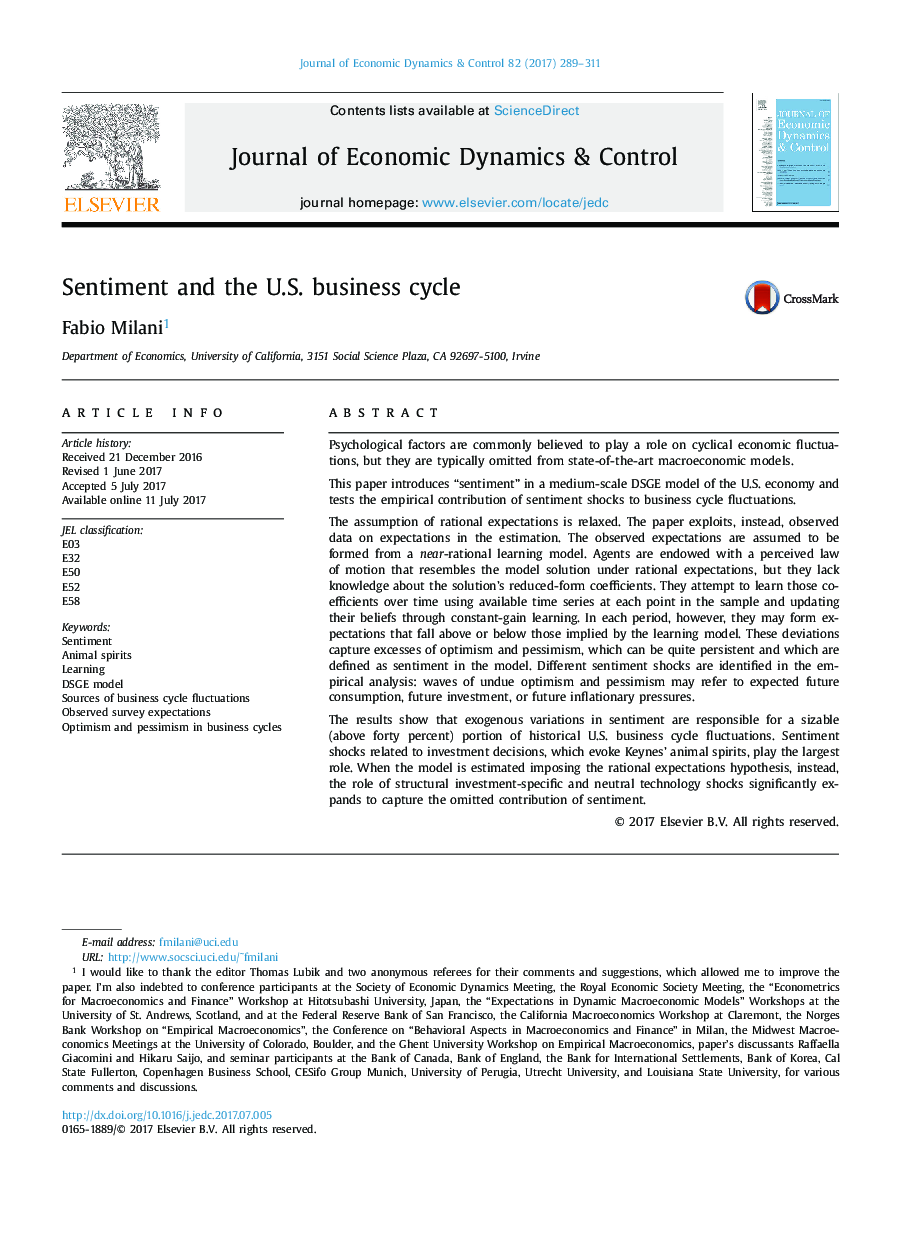| Article ID | Journal | Published Year | Pages | File Type |
|---|---|---|---|---|
| 5097987 | Journal of Economic Dynamics and Control | 2017 | 23 Pages |
Abstract
The results show that exogenous variations in sentiment are responsible for a sizable (above forty percent) portion of historical U.S. business cycle fluctuations. Sentiment shocks related to investment decisions, which evoke Keynes' animal spirits, play the largest role. When the model is estimated imposing the rational expectations hypothesis, instead, the role of structural investment-specific and neutral technology shocks significantly expands to capture the omitted contribution of sentiment.
Related Topics
Physical Sciences and Engineering
Mathematics
Control and Optimization
Authors
Fabio Milani,
